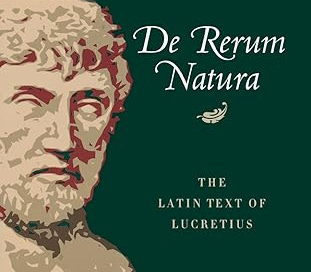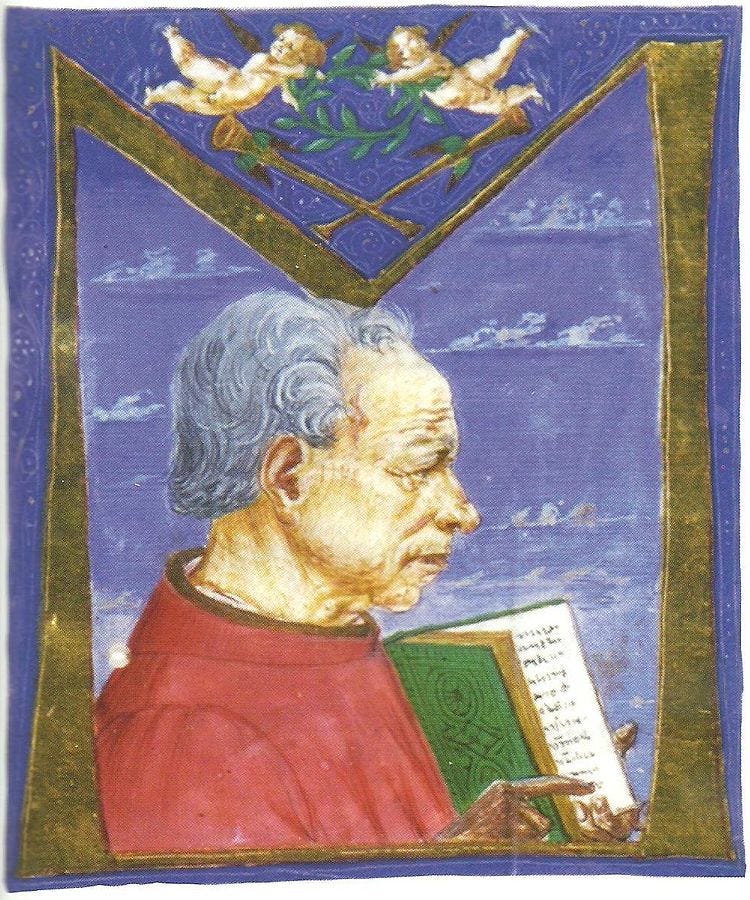Book hunter, Poggio Bracciolini (1380- 1459) lost his job as papal secretary when Antipope John XXIII was deposed by the Council of Constance.1 So Poggio went on a journey to seek old manuscripts at monasteries.2 In the spring of 1416, he explored the libraries of Swiss and Swabian abbeys. Treasures he brought to light supplied scholars and students with the texts of authors whose works had been accessible only in fragmented or mutilated copies.
(Poggio’s handwriting was so beautiful it became the model for early printers, “Humanist Miniscule.”)3
De rerum natura ("On the Nature of Things") by Lucretius
Poggio's most famous find was the discovery of the only surviving manuscript of Lucretius's De rerum natura ("On the Nature of Things") known at the time, in a German monastery in January 1417. Poggio spotted the name, which he remembered as quoted by Cicero. This was a Latin poem of 7,400 lines, divided into six books, giving a full description of the world as viewed by the ancient Greek philosopher Epicurus.
The manuscript found by Poggio is not extant, but he sent the copy to his friend Niccolò de' Niccoli, who made a transcription in his renowned book hand (Niccoli was the creator of italic script), which became the model for the more than fifty other copies circulating at the time. A copy (the "Codex Laurentianus 35.30") is kept at the Laurentian Library in Florence. 4
De rerum natura ("On the Nature of Things") is a first-century BC didactic poem by the Roman poet and philosopher Lucretius (c. 99 BC – c. 55 BC) with the goal of explaining Epicurean philosophy to a Roman audience.5
The Swerve: How the World Became Modern by Stephen Greenblatt
The Pulitzer Prize-winning 2011 book, The Swerve: How the World Became Modern, by Stephen Greenblatt is a narrative of the discovery of the Lucretius manuscript by Poggio. Greenblatt analyzes the poem's subsequent impact on the development of the Renaissance, the Reformation, and modern science.
Stump, Phillip (1994). The Reforms of the Council of Constance (1414–1418). Leiden: E.J. Brill.
Clark, A. C. “The Literary Discoveries of Poggio.” The Classical Review 13, no. 2 (1899): 119–30.
S. Morison, "Early humanistic script and the first roman type", The Library 24 (1943:1–291.
The Library – Biblioteca Medicea Laurenziana (bmlonline.it)
Johnson, W.R (2000). Lucretius and the Modern World. London, UK: Duckworth.







what I found interesting was how much good handwriting was valued before printing.
Ah I remember enjoying The Swerve. Such a great story.